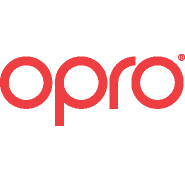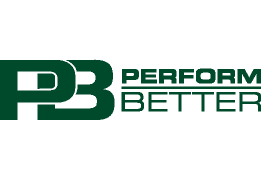Leadership Through Agency and Continuous Learning: The Hallmarks of an Effective Director of Sport
This will be the final blog reflecting on my weekly school visits, sharing specific examples of what the best Directors of Sport are doing in their schools.
In the evolving landscape of Independent School sport, the most impactful Directors of Sport are those who lead through agency, not authority. They don’t need to remind people of their title—because their team already knows their value. These leaders create an environment of professional trust, autonomy and shared accountability, all while staying open, curious and committed to learning.
But what does this actually look like in action?
1. Leadership Through Agency: Trust First, Titles Later
Rather than micromanaging or imposing control, the effective DoS gives away power—and gets far more in return. Here are some practical ways this is showing up in our schools:
Collaborative Planning Weeks: Instead of dictating the sports programme from the top down, these DoS invite Heads of Sport, PE teachers and coaches to co-design schemes of work or fixtures calendars. They ask: “What’s working for you? What needs adapting?” This shared decision-making leads to more buy-in and better outcomes.
Delegated Responsibility, Not Delegated Tasks: A subtle shift, but an important one. Effective leaders don’t just hand over jobs—they hand over ownership. For example, a swimming lead might be asked to audit stroke progression across Years 3–6 and suggest updates. The DoS trusts them to run with it and checks in regularly to support not control.
High Challenge, High Support Conversations: These DoS are not afraid of difficult conversations, but they always approach them with empathy and curiosity. “Help me understand what happened” replaces “Why did you let this happen?” Trust and accountability go hand-in-hand.
2. Creating a Culture of High Expectations and Respect
When people feel trusted and valued, they raise their own standards. But the most effective DoS don’t just set high expectations—they model them.
Consistency Across Programmes: From the 1st XI to the U12C team, these leaders care deeply about the experience of every pupil. They support coaches to plan well-structured, enjoyable sessions for all levels. They make it clear that “just a games lesson” is still a precious 55 minutes to inspire.
Celebrating Effort Not Just Outcome: One school introduced a “Commitment Cup” across all sports teams recognising students who consistently show up, work hard and help others. The idea came from a junior coach and the DoS backed it immediately. That’s agency in action—good ideas rising from anywhere.
Whole Staff Briefings with Purpose: Rather than generic notices, briefings start with a short reflection—sometimes a quote, a pupil success story or a podcast nugget. It sets a tone: we’re here to grow together.
3. Leadership Through Continuous Learning
The best DoS are always learning. They’re reading, listening, observing and questioning—not because they have to but because they want to.
Learning Networks Beyond the School: Whether through PADSIS subgroups, professional WhatsApp communities or attending conferences or school visits, these DoS don’t operate in a vacuum. They’re reaching out: “What’s working in your setting?” “How are you navigating the pressure on Saturday sport?” This peer engagement is both grounding and inspiring.
Reflective Practice as a Habit: Some have even built this into their team’s weekly rhythm. For example, Friday lunchtimes might involve 15 minutes of “Hot Spot Learning” where a coach shares one thing they tried that week—what worked, what didn’t and what they learned. Informal, non-judgemental and golden.
Bringing In Fresh Thinking: One school recently invited a performance psychologist to work with staff on self-regulation and communication under pressure. The DoS set the tone by attending every session not just sending others. That’s leadership by example.
Final Thought
Being an effective DoS isn’t about having all the answers—it’s about creating a culture where everyone wants to find better answers together. When you lead through agency and model a commitment to continuous learning, your staff thrive, your pupils flourish and your programme evolves with purpose.
It’s not always the loudest or most visible form of leadership but it’s the most sustainable and arguably the most impactful.
















